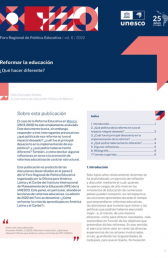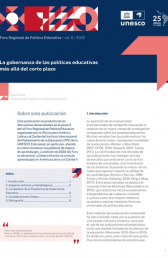Languages
English, French
Series
Ethics and corruption in education
Year
2004
Pages
136 p.
ISBN
92-803-1257-X(English); 978-92-803-2257-6 (French)
About the publication
Public expenditure tracking surveys (PETS) allow policy makers to diagnose how incentives and accountability systems are working in practice and how they can be improved. Among the results provided by PETS are estimates of leakage, data on the percentage of funds spent at each level of the education hierarchy, descriptions of how funding is targeted among different schools and subpopulations, information on school facilities, teacher quality and absenteeism, school governance and accountability. This book provides three examples of .good practice' in using PETS to improve transparency and accountability in managing education resources, and describes the approaches to be used in carrying out the surveys. It presents the experiences of Peru, Uganda and Zambia and underlines the importance of sharing the information generated to create incentives for making education systems more efficient. As the experience of Uganda shows, it was possible to reduce the rate of leakage of non-salary expenditures drastically thanks to an information campaign based on a PETS.









